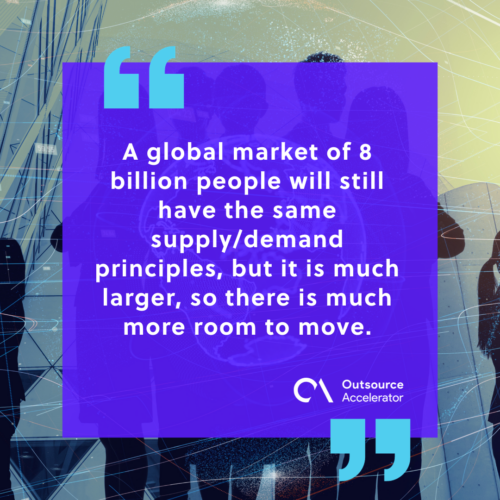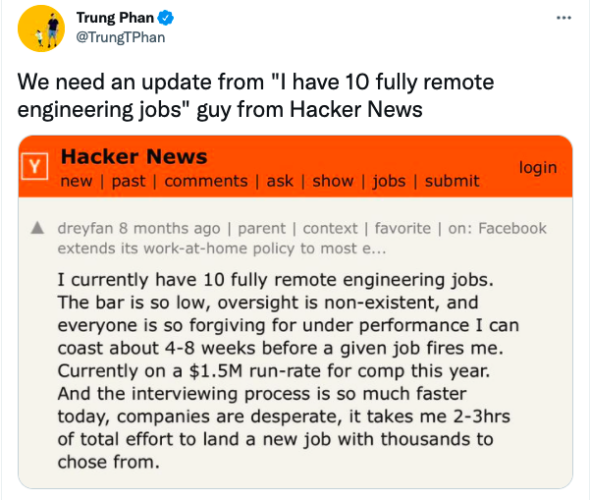A US developer brags about holding down ten full-time jobs, earning him $1.5m per year. He can last 4-8 weeks in a role before getting busted and spends 2-3 hours getting a new job.
This overtly fraudulent behavior sends shivers down the spines of employers who are trying to get to terms with the ‘new normal’ of remote-based work.
Not only do employers have to contend with staff shortages, soaring salaries, and the Great Resignation, now, they have to find a way to police their staff to make sure they’re actually working.
The skeptics laugh and conclude that ‘of course this would happen.’ If people are working remotely, then what else could they expect…
It seems that with the skills shortage and recent work-life enlightenment – the employees seem to be calling all the shots.
Whatever the right conclusion, we have to come to terms that there is a change in the way that work is being done. The expectations of employees are quickly evolving, and the way in which work is done has changed forever.
For the employers, it seems that they have drawn the short straw. There is a general lack of staff. They have to pay more and more to get people working for them, and they can expect less and less in return.
More balance in the markets
When the labor supply is too constricted, then the market distorts. With any market, it is essential to have a balance of supply and demand.
Offshore staffing means that a local smaller market is converted to a global larger market. A global market of 8 billion people will still have the same supply/demand principles, but it is much larger, so there is much more room to move.

Like the US developer above, offshore employees can also be dishonest about work. But offshoring can have a lot of auxiliary support structures (office, payroll department, operations staff, and supervisors) that can help ensure that a worker is on the right path.
As the pressure mounts in the employment market, employers realize there are alternatives to traditional employment. There are 8 billion employees on the planet, and many billions are highly-qualified and will happily work for a fraction of the cost
The question for your business
Does the future direction of work scare you into submission, or does it fill you with excitement for the new possibilities?


 Independent
Independent





















